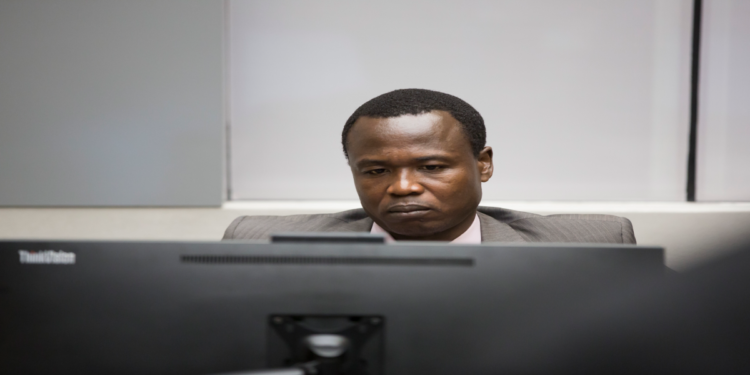By Susan Kendi
Dominic Ongwen, who is facing crimes against humanity charges at the International Criminal Court, begins making his defence this week against the backdrop of a pitched legal battle between the prosecution and his lawyers over whether or not to hear all the witnesses in open court.
The judges decided to admit the recorded testimony of one of the defence witnesses without an oral hearing at the urging of the prosecutors but defence has fought back and is appealing that decision.
Ongwen’s lawyers will have a maximum of five hours to make their opening statements. The first block of witnesses will testify for 10 days, between September 27, 2018 and October 10, 2018.
Ugandan Krispus Odongo Ayena leads the seven-person team of defence lawyers including Chief Charles Achaleke Taku, Abigail Bridgman, Beth S. Lyons, Thomas Obhof, Tibor BajnovicandMichael Rowse.
The prosecution presented 69 witnesses over a period of one year, two months and 12 days, with breaks between. On April 13, 2018, ICC prosecutor Fatou Bensouda informed Court that she had completed her presentation.
Victims’ hearings started in May with seven witnesses; four experts and three participating victims, who testified on the impact of the 30-year-conflict between the Lord’s Resistance Army and the Uganda People’s Defence Force on the population in northern Uganda. The legal representatives of victims concluded their evidence on May 24, 2018.
The three judges in the case, prosecution, defence and the legal representatives made a seven-day visit to Pajule, Lukodi, Odek and Abok camps for the internally displaced and met with the community leaders. The locations are the sites Ongwen is alleged to have attacked.
Dominic Ongwen’s confirmation of charges hearing was held in January 2016 and the trial began in December the same year.
On December 6 and 7, 2016, the prosecution and legal representatives of the victims made their opening statements before the ICC judges.
Ongwen, a former LRA commander, faces 70 counts of war crimes and crimes against humanity which include: murder and attempted murder, sexual slavery, forced marriage, torture, enslavement, conscription of children below 15 years of age, pillaging, destruction of property among other crimes allegedly committed in northern Uganda against the population living in Pajule, Lukodi, Odek and Abok IDP camps.







